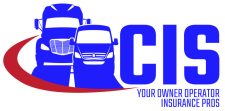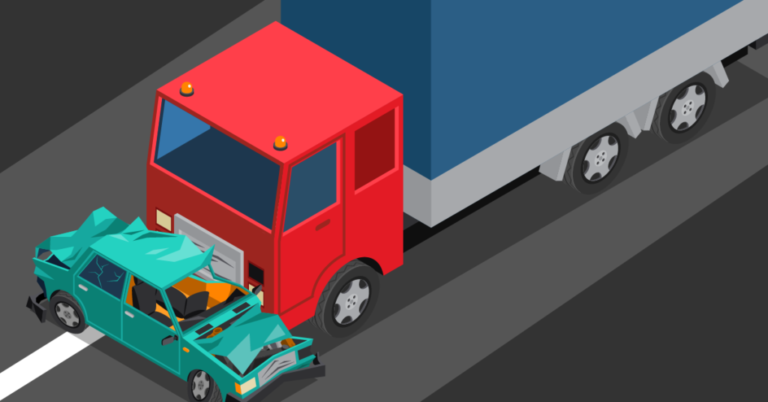Has anyone ever said to you, “You’re liable to get sued!” Everyone has heard it, but what does the word “liable” mean?
It means you’re likely to have legal responsibility for damages you have caused.
…So you’re driving along in your truck and you hit someone or something – and it IS your fault. What happens then – Who’s going to pay for it$$$?
Understanding your Owner Operator Commercial Auto Liability Insurance may be easier than you think. Let’s take a look together….
You buy a Commercial Auto Liability policy so that if you cause an accident while driving then the Insurance Company will pay the damages, right?
If they see that it was clearly your fault, the Insurance Company simply pays the claim (up to the limits of coverage you bought.)
If no one is sure who’s at fault, then the insurance company will also pay for a possible lawsuit against you (up to the limits of coverage you bought.)
In essence, it’s a gamble or risk. When you buy Liability Insurance you’re betting that you COULD have an accident and need to protect yourself from somebody suing you, while the insurance company is betting that you WON’T have an accident at all. (If they think their odds aren’t so good they either don’t take the bet or your rate is higher than your buddy’s:)
Trucking Commercial Auto Liability coverage comes in several forms, let’s break it down together:
1. Primary Liability is for Motor Carriers with their own FMCSA Trucking authority as well as other Owner Operators who work as Independent Contractors. Primary pays a claim when the truck causes an accident while operating for business use.
2. Non-Trucking Liability or “NTL” is for Owner Operators who are under permanent contract lease to a Motor Carrier. When you are operating for business use on behalf of your Motor Carrier, he is covering you for the Primary Liability on his policy (above).
NTL covers you for personal use when you are NOT operating “on behalf of” or “for the benefit of” the Motor Carrier.
Non-Trucking Liability can be very confusing because the words “operating on behalf” or “for the benefit of” the Motor Carrier can be ambiguous. For example, taking yourself “off dispatch” does not mean you are automatically in NTL territory. Other examples of trip deviations or mechanical work have also been judged by the courts to be “business use” and not NTL.
3. Unladen Liability is another term you may have heard.
This coverage is straightforward in comparison to NTL. It clearly states that if the Owner Operator has a loaded truck then it is under dispatch for business use and the Motor Carrier’s Primary Policy pays the claim. If the truck is without a load, it is “Unladen.” So this Owner Operator coverage is far broader than NTL. It is also considerably more expensive than NTL.
4. Bobtail Liability coverage is designed to pay a liability claim when a Tractor is without a trailer. (Most contracts have been updated from Bobtail to NTL so you don’t see this one so much anymore, especially since most insurance companies sell NTL vs Bobtail.)
Commercial Auto Coverage Limits for Truckers
For other Owner Operators working as Independent Contractors, they too have minimum insurance requirements that vary by state. (For Owner Operators leased on to Motor Carriers the limit you purchase should be in your contract.)
That’s it! You’re easy takeaway is to simply think of Liability Insurance as the remedy for lawsuit…cuz you’re “liable to get sued!”
Commercial Insurance Solutions Inc. (CIS)
Shelly’s CIS Truck Insurance 101 is a blog series designed for simple explanations of basic truck insurance coverage for Owner Operators and small Motor Carriers.
Today’s blog “Understanding Owner Operator Commercial Auto Liability Insurance” is second in the series. The first blog in the series is “Understanding Owner Operator Phys Dam Insurance.”
Please contact me directly at Shelly@myCISagent.com with any questions or suggestions for future topics.
….And Thanks for sharing this educational chain because I’ve found that sometimes people are embarrassed to ask questions about their insurance…kind of like I am about driving a truck:)
Shelly
Author
2002 Founder and CEO of Commercial Insurance Solutions, Inc., Shelly Benisch specializes in providing Commercial Truck Insurance for owner operators and small motor carriers. Both CIS and TRS certified, She also writes a free educational trucking insurance advice blog dedicated to the little guy.

